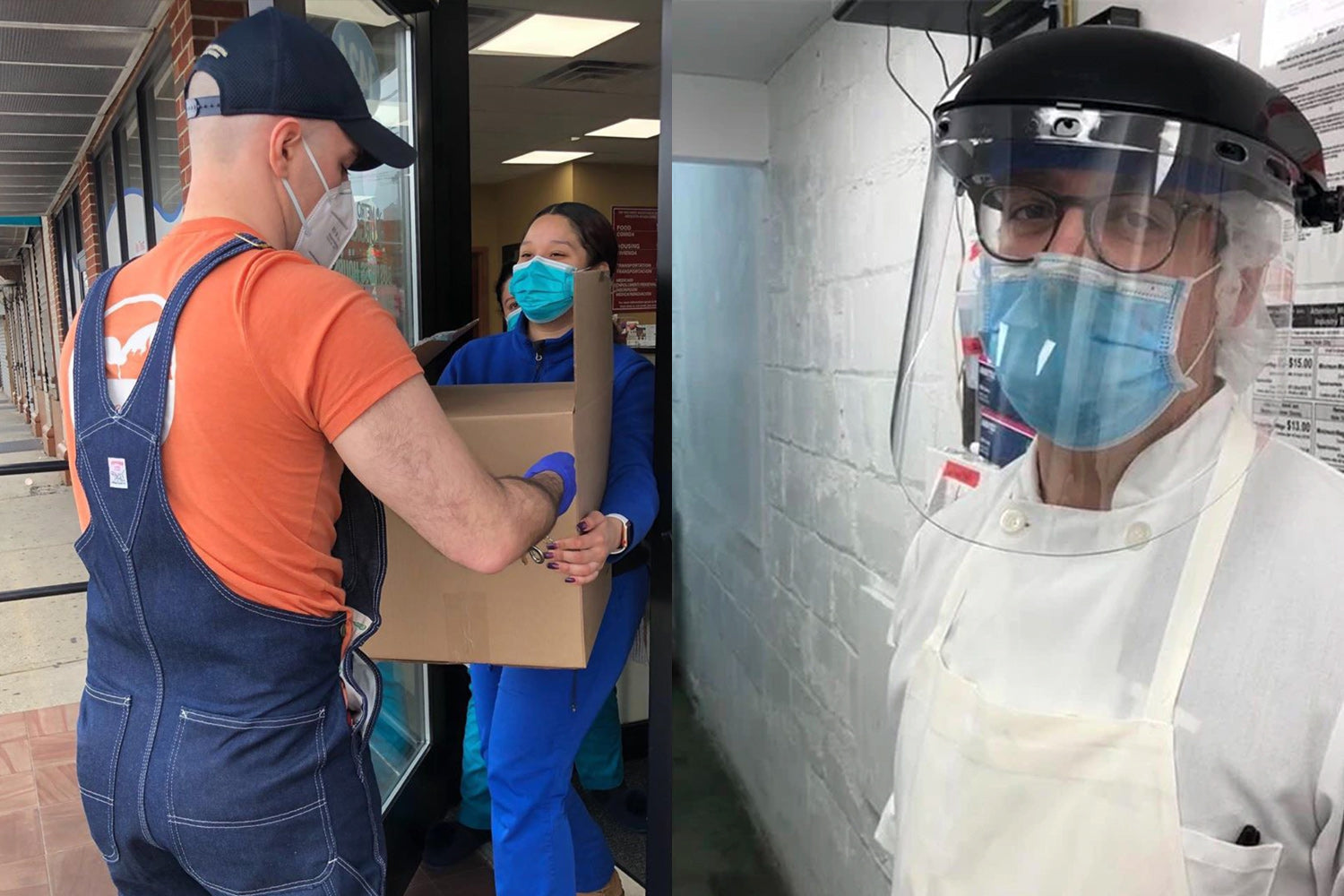
A Letter from the Chef
On April 1, 2020, as I entered my 20th year as a kitchen worker, I had one of the proudest moments of my career. Our kitchen crew, abridged by the effects of the Coronavirus pandemic and wearing surgical masks, had just packaged 400 meals in a little over an hour. Over 300 of those meals would be headed to New York Common Pantry, a soup kitchen in East Harlem, or one of our other nonprofit partners. The rest of them would be headed to Mt Sinai Hospital, a short e-bike ride away from our kitchen in Queens, to feed hospital workers on the front lines of this global crisis. If our mission of "connecting people to their farmers" had seemed abstract in the past, our new, more urgent mission was crystal clear; “take care of your people, and feed as many as you can“.
My people, of course, are everyone around me in the kitchen, and taking care of them has always been a priority. A chef’s success is measured by the quality of the food they put out, and it's only as good as the people preparing it. In that sense our mission hasn’t changed, it’s just become more precarious. How do I protect my team from something that no one else in the world has been able to stop? After weeks of stressing over this, our conclusion was, we can’t. True to most other things in life we can only do our best and control what we can control. Sanitizing the facility, providing masks, and taking temperatures are part of that, and they do more than just protect us physically, they ease the psychological stress associated with work during a pandemic. We have provided bikes to a few employees, and found rides for others so our team can avoid public transit. Our walk-in box and dry storage are now open to our team to grocery shop, and if we don’t have something they need, I order it. We have also instituted a temporary hazard pay, partly because it’s the right thing to do, and partly to remain competitive in a new, more complex labor market. The CARES act that was recently signed, and written by lawmakers from both parties, provides great benefits for those that are unemployed. The federal government will pay $600 a week in unemployment benefits on top of what your state pays. It also eases access to healthcare and benefits for those that get sick, or need to take care of a family member who gets sick. Unfortunately for people who continue to work, and risk their lives in the process, there is nothing. While the bill certainly incentivizes people to stay home, which it should, it doesn’t provide any relief or motivation for people who do not have that option. As our society continues to struggle to recognize it’s issues with class, working people desperately need some representation when legislation is being written that affects them so drastically.That being said, it’s not all bad news. One challenge that has played to our strengths is our dedication to local sourcing. Supply chains are fragile at the moment, and imported products on shelves today may not necessarily be restocked tomorrow. Local farms with short supply chains, however, have turned out to be the most dependable option during the pandemic. Our menus have revolved around local apples, milk, eggs, cheese, vegetables, beans, and even tofu over the last 4 weeks as we have scrambled to shift our operation to feed the most people with the least headache. When Farmer Josh hammers home the message to “support your local farmers”, he is right, and now they are supporting us all when we need them the most.
Of course we couldn’t do all of this without the support of our amazing Green Top community. Whether it’s helping our small business by purchasing bundles while you are working from home, or the incredible generosity you’ve shown through FARM TO TABLES IN NEED, with which we’ve been able to feed our most vulnerable neighbors, the light is starting to shine brighter through the darkness. Our team is grateful and honored for the opportunity to serve our community during a time of great need, even as we lose colleagues and friends. When the 2008 recession hit, restaurants and foodservice operations with tight margins saw them made even tighter, but we were never in fear for our lives. We knew the economy would recover eventually, we just needed to wait it out. During Hurricane Sandy people did lose their lives, but the pathway out of the wreckage was similarly predictable. We needed the power back on, public transit in operation, and a mop for the basement. This crisis is different in that it’s conclusion is unpredictable, and without a timeline. One thing that we can count on as cooks and farmers is that people need to eat; but will people eat together in the same way? Perhaps the future of group dining is not in corporate cafeterias or restaurants, but on Zoom. Either way, there will be no shortage of demand for the people that feed us. Hopefully they come back to work to a grateful society, eager to fight for them.
Chef Anup Joshi

